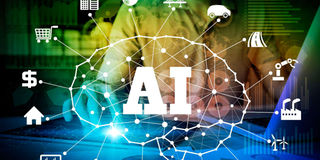Why AI could be the Fourth Revolution

AI is likely to change the way curriculum is delivered and assessed.
What you need to know:
- Virtual reality will make learning of STEM and humanities easier to understand.
- AI will personalise teaching and tutoring, helping students feel good about their learning.
Ever-changing technology has been the hallmark of education over the centuries.
According to Sir Anthony Seldon, the First Revolution happened five million years ago with the beginning of learning by watching and repeating.
The second, the beginning of organised learning in schools, followed some 5,000 years ago and the third roughly 500 years ago because of the invention of the printing press and great global expansion of universities.
The press has since dominated educational technology — with faltering dalliance with the cinema, radio and television education. Artificial intelligence (AI) now stands to change the trajectory.
It has the potential to address some of the biggest challenges in education, including teaching, learning and innovation.
AI is likely to change the way curriculum is delivered and assessed. It is likely to reduce the teacher workload as preparation of lesson plans, schemes of work and marking of assignments.
That will allow teachers to assign exercises to learners and monitor their progress while maintaining the essential human element.
Interpersonal relationships
But despite the advancement in technology, students will still need the critical skills for the 21st Century — like critical thinking, collaboration, communication and creativity.
AI will personalise teaching and tutoring, helping students feel good about their learning.
The mental health issues caused by grading or a school system, whereby success is pegged on passing of a summative examination, dampening the youth’s self-esteem, will be a thing of the past.
Virtual reality will make learning of STEM and humanities more enjoyable and easier to understand.
AI will also help develop all types of intelligence, not just cognitive intelligence, on which school systems overwhelmingly focus, including creativity, interpersonal relationships, character, leadership skill and self-knowledge.
The world over, schools are working to prepare students for 21st Century skills as training programmes prepares teachers to adopt related pedagogy. Governments are working on the relevant policies.
As Alwin Toffler says, the illiterate of the 21st Century will not be those who cannot read and write but those who can’t learn, unlearn and relearn.
Ms Saina is a corporate communication officer at Kenya National Examinations Council (Knec); [email protected]





